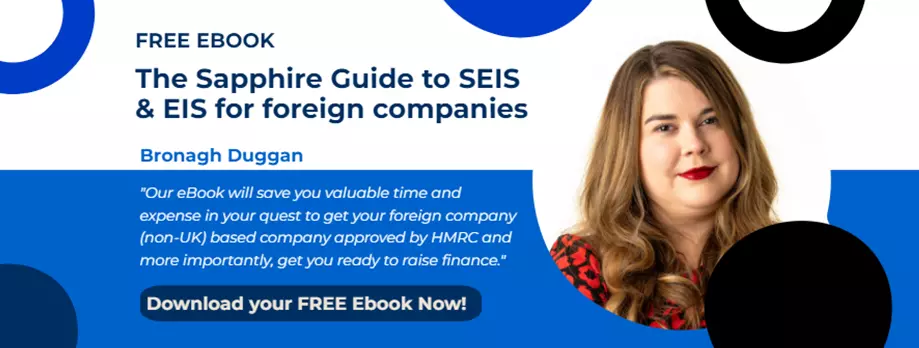Seed Enterprise Investment Schemes (SEIS) and Enterprise Investment Schemes (EIS) allow qualifying companies which have been trading for under two- and seven-years respectively, to raise significant capital to grow and develop their trade, by offering substantial tax reliefs to high net UK investors. Qualifying companies outside of the UK, such as Ireland, can also raise significant capital under SEIS and EIS, although tax reliefs are only available to UK investors.
With the Republic of Ireland bordering with Northern Ireland, companies from the Republic are in a prime position to place an element of their business in the UK and meet the permanent establishment condition. With only an hour train ride from Dublin to Newry or Belfast, Irish companies could very easily set up a branch and apply for the schemes. These schemes require companies to meet both the permanent establishment condition and the other qualifying conditions. Here are five reasons why Irish companies should consider applying for SEIS and/or EIS:
- Close Alignment: Despite the UK now having left the EU, both the UK and Irish regulations are still closely aligned. Irish and UK companies have a similar private limited company structure, as well as similar company law and regulation.
- Attractive Tax Benefits: Under SEIS and EIS qualified UK investors will benefit from 50% (for SEIS) and 30% (for EIS) tax relief. Plus 100% Capital Gains Tax relief, Capital Gains Tax Liability deferral (for EIS), 50% Capital Gains Tax exemption for chargeable gains reinvested (for SEIS), Inheritance Tax relief, and Loss Relief.
While SEIS and EIS offer attractive tax incentives, they are high-risk investments. Investors may lose some or all of their capital, and the shares are typically illiquid, unquoted, and held for a minimum period. The tax benefits are subject to individual circumstances and change in future legislation. - Qualifying Company: Holding companies incorporated in Ireland can avail of SEIS/EIS if it meets the permanent establishment condition and filter investment down to a qualifying subsidiary. A company’s subsidiary doesn’t need to trade in the UK to qualify, under SEIS/EIS so long as the subsidiary is conducting a qualifying trade and is a 90% owned subsidiary by the holding company it can use the monies raised via SEIS/EIS

- No UK Subsidiary Needed: Foreign companies do not need to set up a subsidiary in the UK to qualify. Under SEIS and EIS, a subsidiary will not qualify for either scheme. Money can be raised by the parent company of subsidiaries and be filtered down, so long as it is a qualifying subsidiary and the parent company meets the permanent establishment condition (and the subsidiary is 90% owned by the holding company).
- Quick Turnaround: The application for opening a UK branch and getting a UK Unique Tax Reference only takes circa three months. During which time a company can put together their advanced assurance documentation and submit it to HMRC once they receive their Unique Tax Reference from Companies House, the UK companies register.
Irish and other foreign companies must meet all the qualifying conditions in order to qualify for SEIS and EIS. Our specialists at Sapphire will be happy to discuss whether your company qualifies and/or how you may be able to meet the qualifying conditions. For more information on how an overseas company can be eligible for SEIS and/or EIS please check out our blog or eBook.
Sapphire Capital Partners LLP is authorised and regulated by the Financial Conduct Authority (FRN: 565716). This article is a financial promotion and is intended for UK investors only. The content is for information purposes only and does not constitute investment advice or a recommendation to invest. SEIS and EIS tax reliefs depend on individual circumstances and may change. The value of investments may go down as well as up, and investors may not get back the full amount invested. Past performance is not a reliable indicator of future performance. Investment outcomes can differ substantially, potentially resulting in the loss of all your capital invested. Shares in early-stage companies are illiquid: you may be unable to sell your holding for several years, if at all. Investors should not rely on this article as a basis for investment decisions and must consider the illiquid and high-risk nature of early-stage investing. No warranty as to future outcome is implied nor should one be inferred. Tax treatment depends on individual circumstances and may be subject to change. Investments of this type are generally not covered by the Financial Services Compensation Scheme or the Financial Ombudsman Service if the underlying companies fail.


